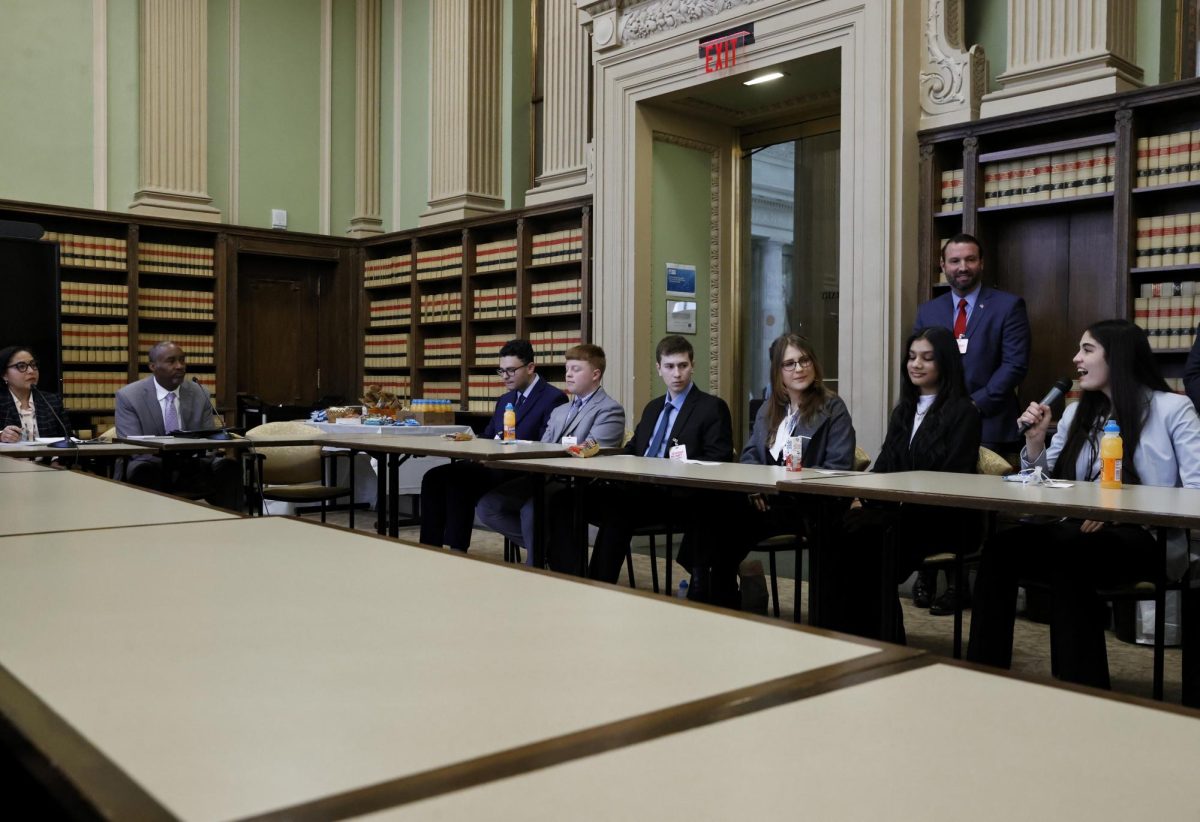The College Board has transitioned 16 AP exams to be administered fully digital, and 12 AP exams to be given in hybrid form as their new initiative to combat problems such as transportation problems and to make the grading process quicker, starting May 2025.
As AP exams move to digital form, there are multiple components to this process. The digital exams that take place online include the AP Computer Science A, AP Computer Science Principles and AP World History: Modern exams.
Some hybrid exams have the questions online and others are answered partly online or fully on paper, which include the AP Calculus AB and the AP Calculus BC exams.
Lastly, there are the traditional exams that still remain fully on paper and include the AP 2-D Art and Design, AP 3-D Art and Design, AP Drawing and the AP Music Theory exams. These exams are taken on the app Bluebook which was recently installed on all students’ Chromebooks to make this transition possible.
“It’s more just making sure that the hardware is working well and that [students] are trained to use it correctly in advance. The proctors also will have to be trained on administering a test digitally as well,” said lead teacher of advanced programs Amy Cappiello.
As these exams shift, the necessary changes to teaching and learning styles have also been made to accommodate these changes. While the curriculum remains the same, many students are now using AP Classroom more to practice online testing and getting familiar with that type of testing environment.
“I think students have to learn a new way to look at assessment. I’ll give you a really good example. The way I test, I love to mark up a book and I love to mark up a piece of paper and highlights and annotate all over. You can do that through the apps, but it’s a new way of learning how to do that. So I think that, that’s the big transition for students is getting comfortable with that piece,” said assistant principal Eric Biagi.
Certain assignments, or parts of exams, such as essay writing in AP World History, have been moved online to mimic what the actual exam is like. Along with this, students taking the AP exams also go through check-ins such as the digital readiness check, which was conducted on April 22, as a way for students to log onto Bluebook and ensure no errors occurred.
“It allows for quicker response for the respective boards AP or IB to get information back. It allows us to do more data. It allows for a more secure testing environment, but as far as what the tests are testing, that hasn’t changed,” said Biagi.
While these precautions and preparations have been made for the exams, there is still always a possibility that something may go wrong. Certain things such as the Wi-Fi failing, Chromebooks not working properly, or dead batteries are all possible mishaps that could occur on test day that could create more stress for students.
“So there are […] outside issues that could occur where even if the student and the school have their acts together, there could still be issues, which is what I’m worried about,” said Cappiello.
As these exams are shifting to virtual, there are also mixed feelings about it amongst students. While some students prefer taking tests online as writing pieces may be easier to type than to write by hand, others do not like how the online exams make it a little more difficult to highlight or annotate a document. It is also difficult to do certain parts of the exams first or flip between pages in the exam.
“I feel like it’s hard to concentrate when the screen is in my face and I much prefer a written test because it’s easier to write on the question and annotate to get your answer,” said junior Elaina M.
Online exam testing is becoming more and more common considering the SAT and ACT fully transitioned to digital in March 2024 and IB exams are planned to become fully digital by 2030.◼️









